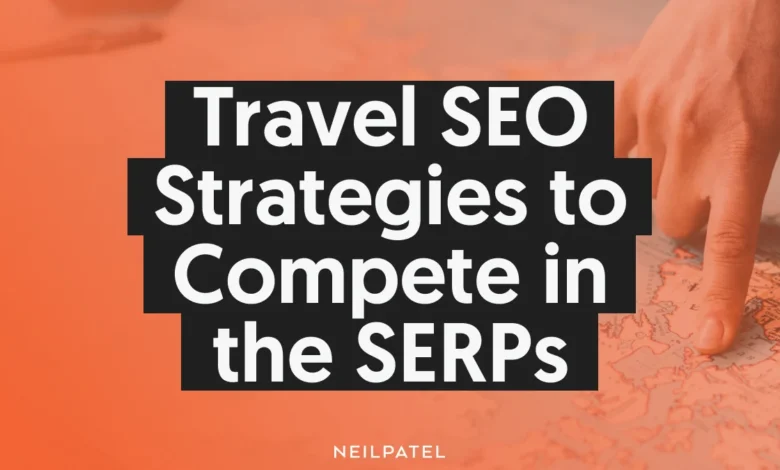Expert Tips for Travel SEO Success

A great SEO strategy is built on the foundation of thorough keyword research. In the travel industry, understanding the search intent of potential travelers is crucial. People search for travel options using specific phrases that indicate their preferences, needs, and desires. Finding keywords that appeal to your target market can help you increase relevant website traffic. When working with a travel SEO agency, you’ll gain insights into which keywords are most effective for capturing the attention of your desired demographic.
Long-tail keywords, for instance, can be particularly beneficial. These more specific and less competitive phrases often lead to higher conversion rates. Consider what potential customers type into a search engine for travel-related information or services. By targeting long-tail keywords such as “boutique hotels in Paris” or “family-friendly activities in Barcelona,” you can attract a more focused and interested audience. Tools and platforms that offer keyword suggestions and search volume data can guide your strategy, ensuring you target the most rewarding terms. This includes analyzing keyword difficulty and seasonal trends to optimize your content strategy effectively.
Content Creation for Travel Websites
Creating engaging and informative content is vital for attracting and retaining visitors. Your articles, blogs, and guides should provide value, whether tips for traveling on a budget, detailed destination guides, or personal travel experiences. Having interesting content keeps visitors on your website longer and promotes sharing, both of which help your SEO efforts.
Visual content, like high-quality images and videos, can also play a significant role. These elements make your site more appealing and can boost engagement rates. Imagine a detailed blog post about hiking trails, accompanied by stunning photos and a video walkthrough – this provides a richer experience for the reader. Interactive features like maps or travel calculators can further enhance user experience. For example, an interactive packing list tool can add value for your audience and increase their time on your site. Remember, well-crafted content is more likely to earn backlinks, improving your website’s overall authority and ranking. Guest contributions from travel bloggers and experts can also diversify your content and reach a broader audience.
Technical SEO Best Practices
Technical SEO involves optimizing your site’s backend to ensure it is easily crawled and indexed by search engines. Critical factors include site speed, mobile friendliness, and secure connections (HTTPS). A fast-loading, mobile-optimized site provides a better user experience, which can positively impact your rankings.
Using structured data markup and building an XML sitemap are additional technical components that can improve how well search engines comprehend and present your material. Rich snippets, which provide additional information at a glance, are one way structured data can improve your search appearance. A strong technical SEO approach should also include repairing broken links, optimizing graphics for quicker loading times, and ensuring the URL structure makes sense. Maintaining and raising your search engine rankings can be achieved by routinely checking your website for these elements. Additionally, you may improve your site’s overall SEO health by ensuring it is free of technical problems like duplicate content and 404 errors.
Effective Backlink Strategies
Inbound links, or backlinks, are essential for increasing SEO and authority. High-quality backlinks from reliable sources alert Search engines to the value and merit of your material. But not every backlink is made equal. Your trustworthiness will increase if you concentrate on acquiring links from well-known travel-related websites.
Guest blogging, creating shareable infographics, and partnerships with travel influencers can all be effective strategies for earning backlinks. For example, a well-designed infographic summarizing travel safety tips can go viral and earn numerous backlinks. Ensuring your content is top-notch and providing unique, helpful information will naturally attract links from other sites. Leveraging a strategy that combines these methods can significantly enhance your backlink profile and, consequently, your rankings. Additionally, participating in forums and Q&A sites where travel is discussed can generate natural backlinks and boost your presence within the community.
Leveraging Local SEO
Local SEO is crucial for travel-related firms in particular. Making sure your company shows up in local searches might attract customers who are looking for services in a particular location. First, claim and enhance your company profiles on the main search engines. Incorporating precise addresses, phone numbers, and company hours can enhance the visibility of local search results.
Additionally, incorporating local keywords and creating localized content can enhance your relevancy for area-specific searches. Publishing blogs about local events, guides on regional attractions, and cross-promotions with local businesses can strengthen your local SEO efforts. For instance, writing an in-depth article about annual local festivals can attract visitors during peak seasons. In addition, reviews and ratings are important for local search engine optimization, so ask happy clients to post good reviews. In addition to improving your local search ranks, this increases credibility and trust among prospective clients.
Social Media Integration
Social media heavily influence travel SEO. In addition to increasing traffic from social media, you should also focus on improving the general SEO performance of your website. Social media sharing of your material can raise its profile, attract more visitors, and raise its search engine ranks. You may improve your online visibility even more by interacting with your audience through likes, shares, and comments.
Social media sites like Facebook and Instagram work especially well for travel-related businesses. Stunning photos, engaging videos, and interactive posts can captivate potential travelers. Furthermore, by increasing traffic to your website and spreading the word about your content, social signals (likes, shares, and comments) can indirectly impact your search engine rankings. For instance, inviting customers to submit their travel images in a social media contest can build excitement about your company and drive a lot of organic traffic. Adding social networking links to your website allows you to easily share information and increase your audience. Furthermore, you may build a stronger relationship with your audience by using Stories and live sessions to engage them in real time and get their comments immediately.



